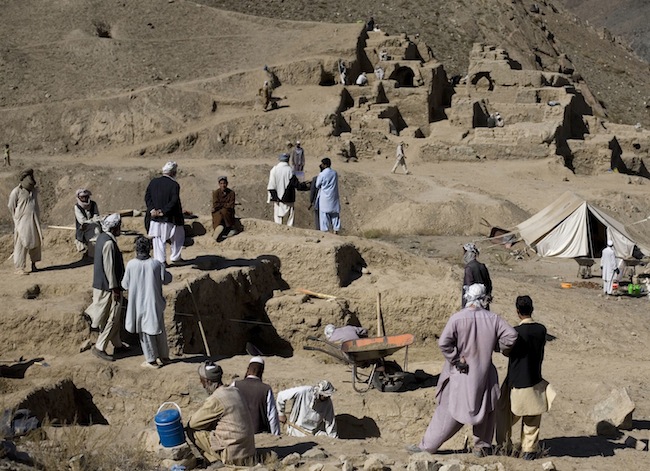China’s stadium diplomacy – for when the pandas are dead
CHINA is coming.
Frank Dikötter notes:
From the copper mines of the Democratic Republic of Congo to the natural gas holdings of Turkmenistan, a giant octopus extends its tentacles, trading finished products for natural resources. In South America 90 per cent of exports to China are unprocessed or barely processed natural resources. The proportion is about the same for Africa. China not only extracts, it also constructs. In what the authors call ‘stadium diplomacy’, dozens of ‘friendship stadiums’ are presented as gifts to countries around the world. Critics characterise them as Trojan horses used to conquer local markets.
In 2009-10, the book told me, China overtook the World Bank as the world’s biggest lender to other countries. This money was mostly channelled through state banks such as the Export Import Bank (Exim) and the China Development Bank (CDB) and state-owned businesses. This money was, in effect, the deployed savings of tens of millions of ordinary Chinese who, without any welfare state, save more than 40 per cent of their earnings against the disasters and contingencies of normal life and death. Since the interest paid to the savers is low, the money represents an ingenious form of taxation used to fund Chinese economic intervention from African mines to Thames Water.
Naturally much of this investment is welcome to governments around the world. But Cardenal and Araújo show that the Chinese involvement, particularly in the developing world, is often accompanied by practices that mirror its own internal development. Reporting on the construction of the Merowe dam in Sudan, for example, they note “China’s utter contempt for any environmental consequences, the destruction of a unique archaeological legacy [and] the violation of the rights of thousands of people who have been forcibly relocated and pushed into extreme poverty”.
Whop needs to give out goodwill panda bears when you can hand out cash?
Stephen King is HSBC’s group chief economist:
For all our domestic woes, we shouldn’t forget that we have so far missed out on the world’s biggest economic opportunity. It’s not always easy doing business in China. That, however, is no longer a suitable excuse. Whatever the rights and wrongs of the UK’s difficult relationship with the rest of the EU, Britain will only be able to dig itself out of its hole if it does better with China. For British business, I can’t think of a better new year’s resolution.
Will increased wealth lead to better working conditions and reactions to the powerful and rich who rule China?
Photo: In this photograph made on Tuesday, Oct. 12, 2010, men work on the excavation of a sprawling 2,600-year-old Buddhist monastery in Mes Aynak, south of Kabul, Afghanistan. The archaeological dig is located at the world’s second-biggest unexploited copper mine. The Chinese government-backed mining company, China Metallurgical Group Corp., which won the contract to exploit the site, has given archaeologists three years to finish the excavations. Afghanistan’s vast mineral wealth is no secret. Mining companies, both Afghan and foreign, have already shown interest in some of the country’s rich resources, notably copper, iron ore and oil. But with poor infrastructure and a security situation that is precarious at best _ and downright prohibitive in some parts of the country _ there has been a limit to how much the country can hope to make, in the medium term at least.
Posted: 4th, January 2013 | In: Money Comment | TrackBack | Permalink



